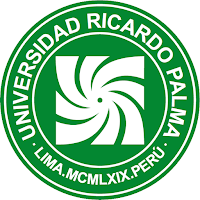The Hispano-American modernist novel: phantasmagorical representations in Fabla salvaje by César Vallejo
The Hispano-American modernist novel: phantasmagorical representations in Fabla salvaje by César Vallejo Le roman moderniste hispano-américain: représentations fantasmagoriques dans Fabla salvaje de César Vallejo
Article Sidebar
Main Article Content
Kent Wilander Oré de la Cruz
Abstract
This article aims to analyse and explain, based on César Vallejo’s short novel Fabla salvaje, how the phantasmagorical representations in which the characters, beings and environments of the narrative are involved are constructed and developed. Likewise, for this purpose, it is necessary to recognise and start from the central idea that this novel is inscribed within the canons of the modernist movement in its version of the decadentist narrative, where man and his individual and cultural condition are condemned to misery, to moral and spiritual destruction and to the annihilation of the traditional institutions that this movement represents, such as love and fidelity. The literary analysis will use, on the one hand, narratological and hermeneutic categories based on the recognition of the textual elements, such as the narrator, space, time and the global meaning of the text; and on the other hand, it will use the categories of literary decadentism developed by Gabriela Mora.
Article level metrics
Downloads
Metrics
Article Details

This work is licensed under a Creative Commons Attribution 4.0 International License.
La revista utiliza una licencia Creative Commons para mostrar a los lectores y a los usuarios cómo se pueden utilizar los contenidos publicados.
Los contenidos publicados en la revista están bajo una licencia CC-BY 4.0, la cual permite:
- Compartir, copiar y redistribuir el material en cualquier medio o formato.
- Adaptar, remezclar, transformar y construir a partir del material para cualquier propósito, incluso comercialmente.
Bajo los siguientes términos:
- Atribución. Usted debe dar crédito de manera adecuada, brindar un enlace a la licencia, e indicar si se han realizado cambios. Puede hacerlo en cualquier forma razonable, pero no de forma tal que sugiera que usted o su uso tienen el apoyo de la licenciante.
La información de licencia se muestra e incrusta en las páginas de artículos y en ficheros de texto completo como sigue:
«Este obra está bajo una licencia de Creative Commons Reconocimiento 4.0 Internacional».
Anderson, E. (1995). Historia de la literatura hispanoamericana I. La colonia. Cien años de república. Fondo de Cultura Económica.
Baudelaire, C. (2012). Dibujos y fragmentos póstumos. Editorial Sexto Piso.
Henríquez, M. (1962). Breve historia del modernismo. Fondo de Cultura Económica.
Mora, G. (1996). El cuento modernista hispanoamericano. Manuel Gutiérrez Nájera, Rubén Darío, Leopoldo Lugones, Manuel Díaz Rodríguez, Clemente Palma. Latinoamericana Editores.
Oviedo, M. (2012). Historia de la literatura hispanoamericana. 2. Del Romanticismo al modernismo. Alianza Editorial.
Pérus, F. (1976). Literatura y sociedad en América Latina: el modernismo. Casa de las Américas.
Rama, Á. (1970). Rubén Darío y el modernismo (circunstancia socioeconómica de un arte americano). Biblioteca de la Universidad Central de Venezuela.
Ricoeur, P. (2011). Teoría de la interpretación. Discurso y excedente de sentido. Siglo Veintiuno Editores.
Roas, D. (2019). Tras los límites de lo real. Una definición de lo fantástico. Páginas de Espuma.
Salinas, P. (2005). La poesía de Rubén Darío. Ensayo sobre el tema y los temas del poeta. Península.
Seagram’s España (2019, 12 de julio). Cap. 1 - ¿Quién dice la verdad? Con Antonio Escohotado y Marta Peirano [entrevista/video]. YouTube. https://www.youtube.com/watch?v=XjMKV_mYRmg
Tamayo, A. (1976). Literatura peruana. Librería Studium Editores.
Vallejo, C. (2005). Fabla salvaje. En Narrativa y ensayos. Antología (pp. 37¬60). El Comercio.
Most read articles by the same author(s)
- Kent Wilander Oré de la Cruz, The function of writing as testimonial discourse: Inca Garcilaso de la Vega and Miguel de Cervantes Saavedra , Archivo Vallejo: Vol. 6 No. 11 (2023): January - June










